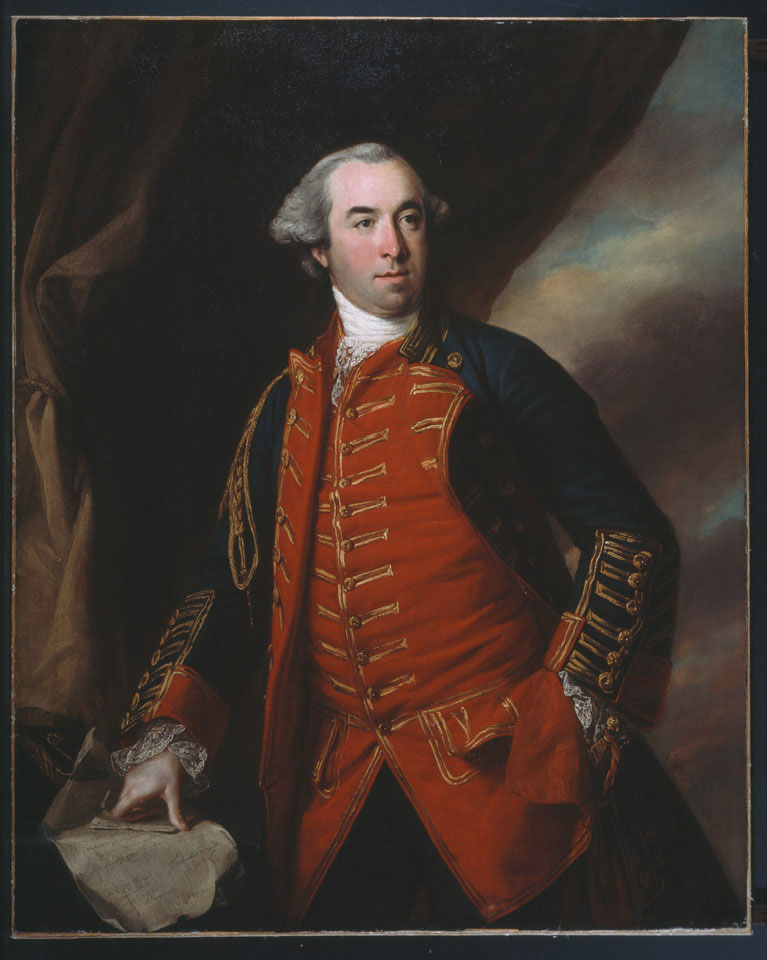
Online Collection
« Prev - 1 of 1 results - Next »
Lieutenant-Colonel William Phillips, 1764 (c)
Oil on canvas, by Francis Cotes (1726-1770), 1764 (c).
Looking commanding here in the uniform of the Royal Regiment of Artillery, William Phillips (1731-1781) was described by one contemporary as 'honest, industrious and irascible'. An able soldier, in 1756 he was appointed aide-de-camp to Sir John Ligonier, Lieutenant-General of the Ordnance (later Commander-in-Chief of the British forces in Germany). With Ligonier's influence, he advanced over the heads of fellow-officers who had greater seniority.
During the Seven Years War (1756-1763), Phillips was posted to Germany in command of a brigade of British artillery attached to the army of Prince Ferdinand of Brunswick. His bold and innovative deployment of the artillery made a major contribution to the Allied victories of Minden (1759) and Warburg (1760). On the conclusion of the war, Phillips was posted to Woolwich in command of a company of artillery for a period. It must have been then that he sat to Cotes for this portrait. The papers under the sitter's right hand relate to his recent service in Germany and are inscribed:
'To/ Granby/ Germany' and 'Au Lieutenant-Colonel Phillips/ Commandant de/ l'Artillerie Britt/ Almagne [signed from] Ferdinand Duc de/ Br & L [Brunswick and Luxembourg].
During the American War of Independence (1775-1783), Phillips fought at the Battles of Stillwater and Saratoga (1777). In 1781 he was ordered to Virginia to assume overall command of British troops in that state. He fought a number of successful engagements against the American forces there, but died in May from a 'putrid' fever contracted on campaign.
NAM Accession Number
NAM. 1992-08-306-1
Copyright/Ownership
National Army Museum, Out of Copyright
Location
National Army Museum, Study Collection
Object URL
https://collection.nam.ac.uk/detail.php?acc=1992-08-306-1

